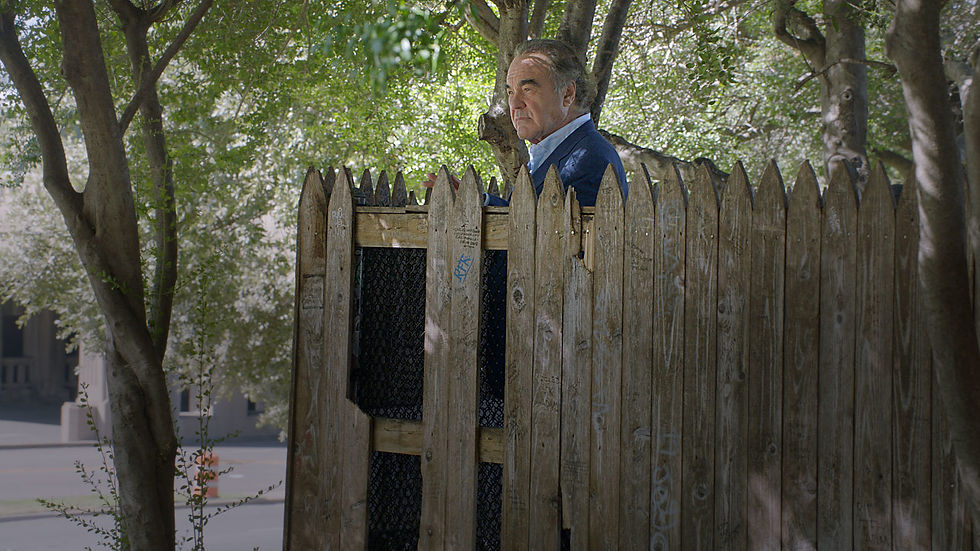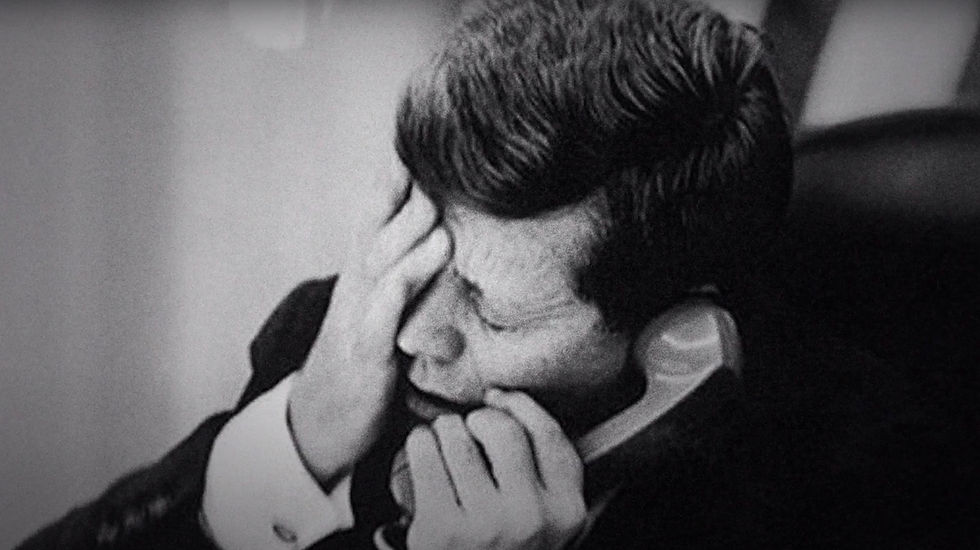A Chronicle of a Crime: A Review of "How John F. Kennedy Was Killed"
Oliver Stone revisits the subject of the assassination of the 35th president of the United States. It's overly meticulous, but still interesting.
John F. Kennedy was assassinated on November 22, 1963. This event is truly extraordinary. Four presidents have been assassinated in the history of the United States, Kennedy being the last of them. After his death, Congress set up a special Warren Commission. It concluded that the killer was former Marine Lee Harvey Oswald, who acted alone. This version remains official today, although it raises a lot of questions and doubts. All of them are thoroughly covered by Oliver Stone.

In 1991, the American filmmaker made John F. Kennedy: Shots in Dallas. Thirty years later, he makes a kind of documentary sequel. One would think that some new information had recently come to light that fundamentally changed the case. In fact, the Kennedy assassination continues to excite Stone and won't let go. The director is one of the founders of modern American political cinema, so it is not surprising that he returns to perhaps the most important event in his home country's domestic politics. In the 21st century, many living classics (Wim Wenders, for instance) are not very good at feature films, but they are very good at documentaries. So we can even say that "How JFK Was Murdered" could not fail. Over the past 10 years, the director of "Platoon" and "Natural Born Killers" managed to talk to Vladimir Putin and shoot a 10-episode project about the unknown and often dark pages of American history. He is by nature a provocateur who is always in opposition to the US government. But while Michael Moore ("Fahrenheit 9/11") mocks the evils of the system, Stone takes on the angry pathos of an honest citizen.

The American director takes the question extremely seriously and carefully examines the many inconsistencies in the Warren Commission's version. To do so, Stone interviews a crowd of retired forensic scientists, journalists, doctors and conspiracy theorists. The 60's investigation is smashed to smithereens. The shots were definitely not 3, Kennedy was not shot from the back, the entry wound of the fatal bullet was in the neck, not the back of the head, there were at least two shooters, even the autopsy photos of the president were faked... Stone and his associates are very convincing. The Kennedy assassination appears to be an elaborate hoax perpetrated by dozens of people in front of an unsuspecting public. It is hard to say exactly where the science ends and the speculation begins. Thousands of documents still do not add up to the big picture.

The assassination of the 35th president of the USA is shrouded in mysteries from different sides. The director very meticulously and with a tedious listing of names of witnesses and secret service officers involved in the crime builds a very complicated mosaic: the film has a lot of newsreels, restoring the chronology of events of that unfortunate day minute by minute.
From the endless stream of information sometimes dizzying. Often the picture wants to pause and try to somehow digest the conspiracy facts (as Stone himself calls them), which are dumped from the screen on the audience. "How JFK Was Assassinated" does an excellent job of captivating the viewer with the subject matter. From the very first minutes, one wants to follow the gray-haired men into it head-on. You just need to somehow get a pass to the U.S. National Archives and other not-so-open institutions.
For more than an hour, Stone methodically uses documents to prove that Kennedy was murdered by conspirators. As he did 30 years ago, the filmmaker blames the CIA and personally its director Allen Dulles. In the second part of the film, Stone sets the historical context. Times were turbulent: Kennedy was in no hurry to invade Vietnam, he didn't systematically exterminate communists in Cuba, he befriended dubious regimes in Indonesia and Egypt. The intelligence services were unhappy with the president and saw him as a man who would not let them get away with it. Almost immediately after Kennedy's death, the new president, Lyndon Johnson, changed the country's foreign policy dramatically, acting more aggressively than his predecessor.

If in the first hour we see Stone the historian or Stone the archivist, a man who is absorbed in his topic of interest and has slightly forgotten what the film is all about, in the second half Stone the publicist takes the stage. He draws a thread from the 1963 assassination to the present day and comes to the conclusion that many of America's social problems and wars are rooted in the trauma of Kennedy's death. The author has an exceptionally positive attitude toward his hero, painting a portrait of the ideal politician. The President of the United States was hardly an angel, but Stone, the fiery orator, wants to believe. Besides, there are hardly any people today who believe that John F. Kennedy was shot and killed by Lee Harvey Oswald alone in front of a crowd. It is a rare case where a conspiracy can be seen without a conspiracy-hardened mind. In any case, we are faced with an injustice whose perpetrators have not been punished.
"How Kennedy Was Assassinated," if you get used to the abundance of names, mysteries, and testimony, looks really exciting. It is a complex spy detective story with an open-ended ending. Stone is confident in his version of events, but never comes to any specific conclusions. There are no names of other shooters or conspirators or any other clarifying information. It's all the CIA's fault! On the other hand, if you've never taken a detailed interest in the assassination of the 35th president of the United States, but only heard about it thanks to Stephen King's book "11/22/63" or its film adaptation in the form of a mini-series, Stone's picture is a great entry point into this giant topic. Puzzle fans certainly won't be disappointed.
Commentaires